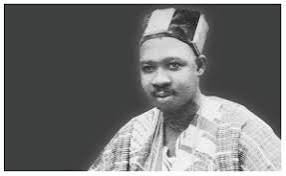
Joseph Adam Braimah, born on August 31, 1916, in Kpembe, now part of the Savannah Region of Ghana, stands as a monumental figure in the nation’s political history. As the first person from the Northern Region to serve as both a Member of Parliament and a Cabinet Minister, Braimah’s life journey reflects a commitment to public service, political integrity, and cultural heritage.
Early Life and Education
Braimah’s educational journey began at the Tamale Infant School, followed by the Salaga Primary School. In 1932, amidst the British colonial era’s “indirect rule” system, he became one of the first Northerners appointed as a Native Authority Clerk in the Northern Territories of the Gold Coast. His ascent through the ranks to become a Senior Native Authority Clerk laid the foundation for his future political endeavors.
Political Ascendancy
In 1950, Braimah’s political career took a significant turn when he was appointed to the Legislative Council, representing the Northern Territories. His influence expanded in 1951 when Kwame Nkrumah appointed him as a Cabinet Minister for Communications and Works, making him the first person from the Northern Region to hold such a position. This appointment marked a pivotal moment in Ghana’s political landscape, symbolizing the inclusion of the Northern Territories in the nation’s governance.
Braimah’s political affiliations evolved over time. Initially a member of the United Party (UP), he transitioned to the Convention People’s Party (CPP) in 1959, aligning with Nkrumah’s vision for Ghana’s future. His political journey reflects the dynamic nature of Ghana’s post-colonial political environment and his adaptability to its changing tides.
The Bribery Scandal and Resignation
In 1953, Braimah’s political career faced a significant challenge. He resigned from his ministerial position after admitting to accepting a £2,000 bribe from Aksor Kasardjian, an Armenian contractor. This admission led to a commission of inquiry, chaired by Justice Kobina Arku Korsah, to investigate political corruption. Braimah’s decision to resign, acknowledging his wrongdoing, was unprecedented in Ghana’s political history and set a precedent for accountability in public office.
Personal Life and Legacy
Beyond his political career, Braimah was a man of family and faith. He had 11 wives and 52 children, reflecting his deep-rooted cultural values. His personal life, characterized by his large family, underscores the importance of community and tradition in his life.
Braimah’s legacy continues to inspire. In May 2021, Vice President Dr. Mahamudu Bawumia launched Braimah’s memoir, “J.A. Braimah: Biography of a Trailblazer,” at the Ghana Academy of Arts and Sciences. This biography chronicles Braimah’s life and contributions, ensuring that his story is preserved for future generations. The launch of the memoir was a testament to Braimah’s enduring impact on Ghana’s political and social fabric.
Frequently Asked Questions (FAQs)
1. Who was Joseph Adam Braimah?
Joseph Adam Braimah was a Ghanaian politician, author, and chief, renowned for being the first person from the Northern Region to serve as both a Member of Parliament and a Cabinet Minister.
2. What was Braimah’s role in Ghana’s government?
In 1951, Braimah was appointed as a Cabinet Minister for Communications and Works by Kwame Nkrumah, marking a significant milestone in Ghana’s political history.
3. Why did Braimah resign from his ministerial position?
Braimah resigned in 1953 after admitting to accepting a £2,000 bribe from a contractor, setting a precedent for accountability in public office.
4. What political parties was Braimah affiliated with?
Braimah was initially a member of the United Party (UP) and later joined the Convention People’s Party (CPP) in 1959.
5. What is Braimah’s legacy?
Braimah’s legacy is characterized by his commitment to public service, political integrity, and cultural heritage. His memoir, launched in 2021, continues to inspire future generations.
6. How many children did Braimah have?
Braimah had 11 wives and 52 children, reflecting his deep-rooted cultural values.
7. When did Joseph Adam Braimah pass away?
Joseph Adam Braimah passed away in the 1980s at the age of 70.
8. What was Braimah’s educational background?
Braimah began his education at the Tamale Infant School and continued at the Salaga Primary School. In 1932, he became a Native Authority Clerk, rising through the ranks to become a Senior Native Authority Clerk.
9. What was the significance of Braimah’s resignation?
Braimah’s resignation was significant as it was the first time a Ghanaian minister resigned after admitting to accepting a bribe, setting a standard for political accountability.
10. What is the title of Braimah’s memoir?
The title of Braimah’s memoir is “J.A. Braimah: Biography of a Trailblazer,” launched in May 2021.
Joseph Adam Braimah’s life story is a testament to the complexities of Ghana’s political history. His contributions, challenges, and the lessons drawn from his experiences continue to shape the nation’s political landscape. As Ghana progresses, the legacy of Braimah serves as a reminder of the importance of integrity, accountability, and dedication to public service.